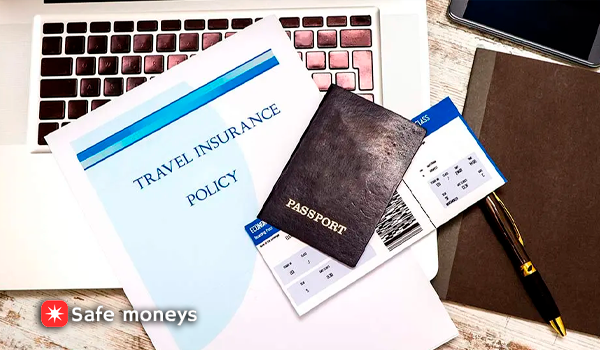Travel insurance is a powerful financial shield that protects you from disruptions, emergencies, and unforeseen costs while you’re away from home. From sudden cancellations to lost bags and medical treatment, here’s what you need to know before locking in a policy.
What’s Typically Covered in a Travel Insurance Plan
Emergency Medical Expenses
Accidents or illness abroad can result in sky-high medical bills. A solid policy should cover doctor visits, hospital stays, prescriptions, and even emergency dental care—especially important if you’re heading somewhere with limited or costly healthcare.
Trip Cancellations or Interruptions
Plans sometimes change due to illness, weather, or personal emergencies. A dependable policy helps recoup prepaid expenses like flights, hotels, or tours that you otherwise couldn’t recover.
Lost or Delayed Baggage
When luggage goes missing, coverage ensures you get reimbursed for essentials like clothing or toiletries—and possibly valuables—so your trip doesn’t get derailed.
Flight or Travel Delays
Delays can lead to missed connections and unexpected overnight stays. Insurance often reimburses expenses such as hotel rooms and meals, helping you manage these setbacks with ease.
Emergency Evacuation
If disaster strikes or you need to be transported to a hospital, evacuation coverage ensures you’re moved to a safe location or returned home without bearing the full cost.
Accidental Death or Injury
In the worst-case scenario, this protection provides financial compensation for serious accidents while traveling, adding a layer of security for you and your family.
24/7 Support Line
Top insurers offer round-the-clock assistance for emergencies—whether that means finding medical help, replacing stolen documents, or rebooking travel.
How to Pick the Right Policy
When comparing travel insurance plans, don’t just look at the price. Consider your destination, itinerary, and what risks you may encounter.
- Go beyond basic coverage: Choose plans that include both medical and evacuation benefits, especially if traveling internationally or to remote regions.
- Review cancellation terms: Ensure coverage for personal emergencies, illness, or disruptions caused by natural disasters.
- Evaluate baggage protection: Check the reimbursement cap—especially if you’re carrying tech gear, designer luggage, or jewelry.
- Look for delay benefits: Frequent travelers should prioritize coverage that reimburses for food, transport, and accommodations during unexpected holdups.
- Read customer reviews: Not all providers are equal. Look for those with reliable customer support, clear claims processes, and strong reputations.
Why Insurance Should Be Part of Every Trip
Skipping travel insurance can leave you exposed to massive costs and logistical nightmares. It’s not just about “what if”—it’s about being prepared for real-world challenges that can derail your plans.
A well-chosen policy ensures that, no matter what happens, you’ll be able to recover and continue enjoying your journey. It’s a small investment that offers priceless peace of mind.


 Business Credit Cards Made Easy: Your Step-by-Step Approval Guide <p class='sec-title' style='line-height: normal; font-weight: normal;font-size: 16px !important; text-align: left;margin-top: 8px;margin-bottom: 0px !important;'>Ready to take control of your business finances with a credit card? Here's how to apply confidently—and get approved faster.</p>
Business Credit Cards Made Easy: Your Step-by-Step Approval Guide <p class='sec-title' style='line-height: normal; font-weight: normal;font-size: 16px !important; text-align: left;margin-top: 8px;margin-bottom: 0px !important;'>Ready to take control of your business finances with a credit card? Here's how to apply confidently—and get approved faster.</p>  Future-Proof Careers: Roles Rising with Innovation and Sustainability <p class='sec-title' style='line-height: normal; font-weight: normal;font-size: 16px !important; text-align: left;margin-top: 8px;margin-bottom: 0px !important;'>The job market is undergoing radical change. Here's how to stay ahead by focusing on the careers gaining traction in tech, health, and the environment.</p>
Future-Proof Careers: Roles Rising with Innovation and Sustainability <p class='sec-title' style='line-height: normal; font-weight: normal;font-size: 16px !important; text-align: left;margin-top: 8px;margin-bottom: 0px !important;'>The job market is undergoing radical change. Here's how to stay ahead by focusing on the careers gaining traction in tech, health, and the environment.</p>  Self-Employed Tax Hacks: Must-Know Deductions to Keep More of Your Income <p class='sec-title' style='line-height: normal; font-weight: normal;font-size: 16px !important; text-align: left;margin-top: 8px;margin-bottom: 0px !important;'>Discover the smartest ways to save on taxes as a freelancer or business owner. Every dollar counts—don’t leave money on the table.</p>
Self-Employed Tax Hacks: Must-Know Deductions to Keep More of Your Income <p class='sec-title' style='line-height: normal; font-weight: normal;font-size: 16px !important; text-align: left;margin-top: 8px;margin-bottom: 0px !important;'>Discover the smartest ways to save on taxes as a freelancer or business owner. Every dollar counts—don’t leave money on the table.</p>